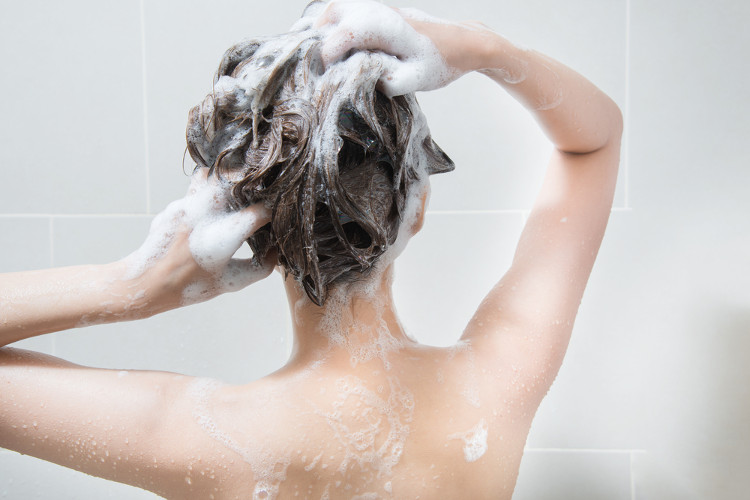Detecting carcinogenic chemicals in bath products
1,4-dioxane chemicals found in bath products such as shower gels, lotions and soaps are likely to cause cancer in humans.
1,4-dioxane poison is used in some bath products including most shower gels, shower gels, shampoos and even hand soap. They are related to cancer in the liver and breast.
Although identified as carcinogens, companies that manufacture these products are not required to list them on their product labels.
Currently two US senators Charles Schumer and Kirsten Gillibrand are calling on the FDA to issue a ban on the use of this chemical.

1,4-dioxane is commonly used in some bath products.
1,4-dioxane chemical is a transparent liquid easily soluble in water. It is used primarily as a solvent in the manufacture of chemicals and as a laboratory test substance (a substance used to cause chemical reactions).
The toxin is produced through a process called ethoxylation , in which ethylene oxide - a breast carcinogen added to other chemicals to make them less harsh.
The FDA encourages manufacturers to remove 1,4-dioxane, but federal law does not require it.
Although limited, some studies have shown that experimental mice that breathe 1.4 dioxane during their lifetime develop cancer within the nose and abdominal cavity.
In addition, experimental mice and mice that drank water containing 1,4-dioxane during their lifetime also developed liver cancer. For this reason, the US Department of Health and Human Services thinks that 1,4-dioxane is a human carcinogen.
The Environmental Working Group believes that there are at least 8,000 products on the US market with ingredients that can contain 1,4-dioxane.
Although this chemical is not intentionally added to most bath products, it can be recorded as an unintentional byproduct in some of the ingredients used.
A 2008 survey showed that this chemical accounted for 46% of tested personal care products.
Some companies have agreed to stop using 1,4-dioxane, including Johnson & Johnson, in 2014.
Currently, New York Senator Charles Schumer and Kirsten Gillibrand are calling on FDA to ban the chemical because it thinks it has no real effect on cosmetics.
In fact, 1,4-dioxane, a potentially dangerous chemical in everyday products, is expected to help skin, hair, etc., be harmful to children.
3 other toxic chemicals found in beauty products:
1. Oxybenzone (benzophenone)
Use in sunscreen, lip balm, SPF products.
This chemical may mimic hormones, cause endometriosis and may be dangerous to the reproductive system.
2. Toluene
- Used in nail polishes and detergents.
- Toluene affects nerves, causes irritation, difficulty breathing, and produces nausea.
- Epidemiological studies and animal studies show that this chemical has a negative impact on the immune system and causes certain types of cancer.
3. Phenoxyethanol
- Used in perfumes, makeup cosmetics, hand sanitizers, deodorants, toothpaste, paper towels, sunscreen, lotion.
- Phenoxyethanol may cause skin and eczema irritation, may even affect the central nervous system function.It has been shown to adversely affect the bladder in animal studies
- Some chemicals in sister's cosmetic products can cause breast cancer
- Detecting toxic chemicals in fragrance products
- Detecting cancer-causing chemicals in coffee and bim
- Video: Chemicals in yoga mats can cause infertility in women
- Carcinogenic bottles and packaging?
- American experts warn of 'permanent chemicals' that cause cancer in food
- Is antibacterial soap safe?
- PFAS in food containers can cause kidney disease
- What happens to the body when you eat instant noodles?
- Why should you soak your feet and 3 foot baths to protect your health?
- EU enacted laws controlling chemicals
- Abuse of wet paper can harm children
 Why is Australia the country with the highest cancer rate in the world while Vietnam ranks 100th?
Why is Australia the country with the highest cancer rate in the world while Vietnam ranks 100th? New drug causes cancer to 'starve'
New drug causes cancer to 'starve' Common cancers in men
Common cancers in men America's incredible discovery: The most feared cancer cell is love
America's incredible discovery: The most feared cancer cell is love